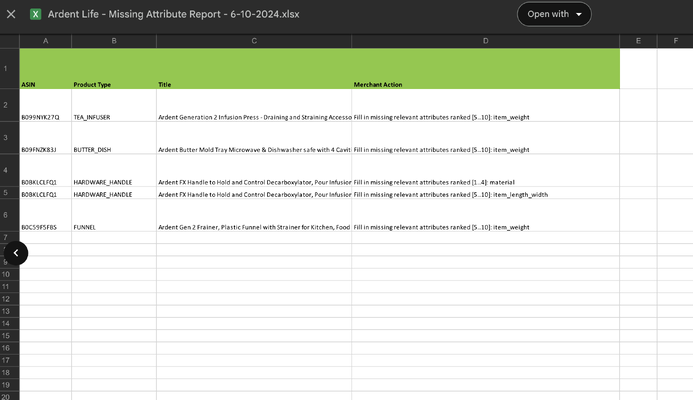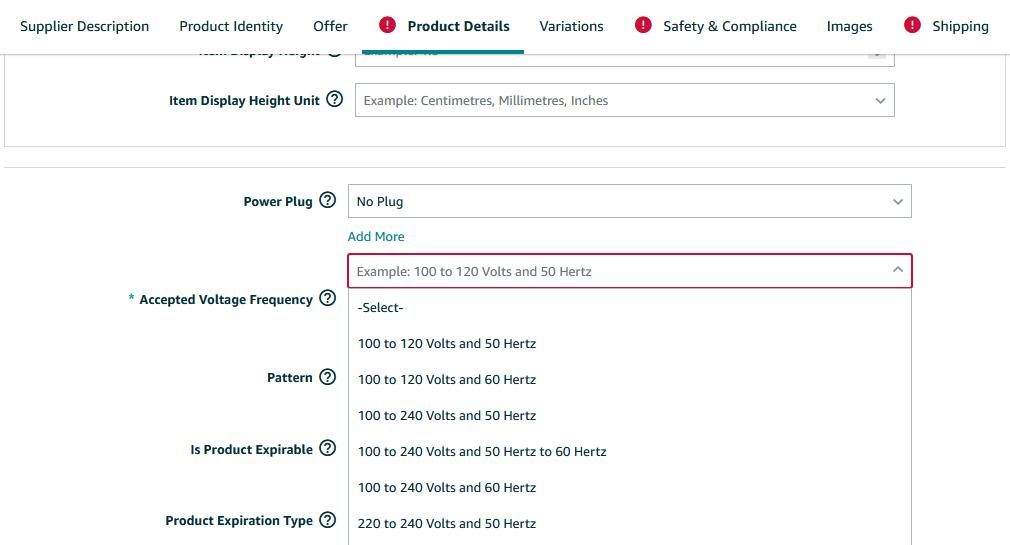Unlocking Amazon SEO Cheat Code: Understanding the Backend Attributes
If you’re an Amazon seller striving to improve your product discoverability and sales, you’ve likely heard of the IDQ (Item Data Quality) Report or the Missing Attribute Report. These tools are more than just diagnostics—they are gateways to optimizing your listings, enhancing your visibility, and staying ahead of the competition.
Let’s dive into these reports, why they matter, and how to leverage them for success.
What is the IDQ or Missing Attribute Report?
The IDQ Report provides a detailed analysis of your product listings, highlighting missing or incomplete attributes that impact your product’s visibility and discoverability. These attributes are crucial in Amazon’s search algorithm and help customers filter and find products more efficiently.
Think of it this way: If a shopper filters their search for “blue cotton T-shirts,” but your listing lacks the color or material attribute, it won’t appear in their search—even if it’s the perfect match. That’s where the IDQ report becomes a game-changer.
Why is the IDQ Report Important?
- Enhanced Discoverability: Amazon’s search algorithm and filters rely heavily on attributes. Missing critical data could mean your product doesn’t show up in relevant searches.
- Higher Conversion Rates: Comprehensive listings make it easier for customers to make informed decisions, reducing cart abandonment and increasing sales.
- Improved Search Ranking: Amazon rewards complete and optimized listings with higher visibility in search results.
- Avoid Listing Suppression: Missing mandatory attributes can result in listing suppression, meaning your product becomes invisible to potential buyers.
Key Attributes Highlighted in the Report
The report flags essential and recommended attributes missing from your listings. Here are some examples:
- Color: Crucial for fashion and home decor products.
- Size: Necessary for clothing, tools, and appliances.
- Material: Important for furniture, kitchenware, and accessories.
- Intended Use: Vital for niche categories like beauty, tools, or outdoor gear.
- Certifications: Compliance-related attributes such as CE, FCC, or safety warnings.
- Product Identifiers: Missing GTINs, UPCs, or ASINs can hinder searchability.
How to Leverage the IDQ Report
- Access the Report: Navigate to Seller Central → Reports → Inventory Reports, and select the IDQ or Missing Attribute Report.
- Analyze Missing Data: Review the flagged listings and prioritize fixing required attributes first, followed by recommended ones.
- Update Listings: Use the Manage Inventory page or the bulk upload tool to input missing details efficiently.
- Monitor Regularly: Amazon continuously updates its requirements. Make it a habit to check the report monthly to stay compliant and competitive.
Best Practices for Maintaining High Data Quality
- Be Proactive: Fill out all relevant fields when creating a new listing. Don’t skip optional attributes—they often make a big difference.
- Use Data Tools: Tools like Helium 10 or Jungle Scout can help identify trends and keywords for optimized attributes.
- Focus on Compliance: Double-check that compliance-related fields, like safety warnings, are accurate and up to date.
- Keep Listings Current: Regularly update listings to reflect seasonal changes, new keywords, or product enhancements.
The Bigger Picture: Why It Matters
In today’s highly competitive Amazon marketplace, a well-optimized listing isn’t optional—it’s essential. The IDQ and Missing Attribute Reports provide sellers with a roadmap to improve their product’s discoverability, sales, and overall success. By addressing gaps flagged in these reports, you not only improve your product’s visibility but also enhance the customer experience, leading to better reviews and repeat purchases.
Final Thoughts
The IDQ and Missing Attribute Reports are more than just tools—they are opportunities to refine your strategy, ensure your listings are complete, and gain a competitive edge. Whether you’re an experienced seller or just starting out, leveraging these insights can significantly impact your performance on Amazon.
💡 Pro Tip: Make data quality checks a part of your routine. It’s a small effort that can lead to big results.
Ruben A.
CEO at PAS








Leave a Reply
Want to join the discussion?Feel free to contribute!